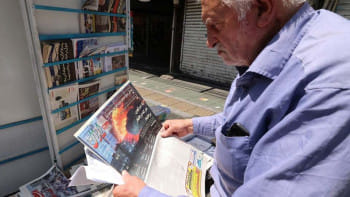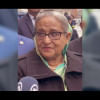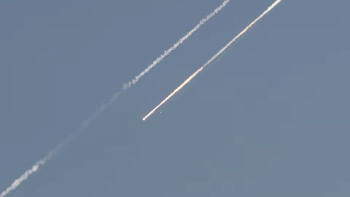Israel and the reinvention of bio-necro-politics

When Michel Foucault theorised biopolitics, he identified a momentous transformation in the mechanics of state power: from the sovereign's prerogative to take life to the modern state's obligation to foster, regulate, and optimise it. The now-canonical formula—"make live and let die"—described a shift where public health, census data, birth rates, and urban planning replaced execution and spectacle as tools of governance. Yet what we witness today in Gaza and the broader occupied Palestinian territories is neither a straightforward continuation of this model nor a mere return to sovereign violence. Rather, it is a radical reinvention—an unprecedented fusion of biopolitical management with necropolitical elimination.
Israel has engineered what might best be called bio-necro-politics: a regime in which the technologies of life and death, care and coercion, surveillance and erasure operate not in contradiction, but in concert. In Gaza, this apparatus not only kills—it governs through calibrated suffering. Innocent civilians, particularly women and children, are not spared even in hospitals, shelters, or so-called safe zones. Beyond the immediate toll of airstrikes and sieges, what unfolds is a slower, more insidious orchestration of death—administered with genocidal intent and bureaucratic precision. Israel allows just enough sustenance to forestall mass starvation, just enough medicine to prevent total collapse, while systematically denying everything that makes life dignified: mobility, education, healthcare, security. Gaza is not simply a battlefield. It is a crucible where the very frameworks of power and human dignity are being dismantled, transforming existence into mere endurance and survival into an arena of imposed subjugation.
In Gaza, survival is not a human right—it is a variable, calculated by the occupying power. Israeli officials once admitted to computing the precise number of calories allowed into Gaza to avoid outright famine while "putting pressure" on Hamas. The goal was not to kill, but to make death visible just enough to become a tool of control. Fuel is rationed. Water desalination is blocked. Medical access is obstructed. Borders are sealed.
This is not collateral damage—it is the architecture of domination. The aim is to degrade life to its bare minimum without extinguishing it entirely. What Giorgio Agamben calls bare life—life stripped of rights, voice, and political existence—becomes institutionalised policy. In Gaza, bombings are not followed by resolution, but by a grim choreography of provisional relief, token reconstruction, and the swift return of siege. The rhythm is not one of war and peace, but of perpetual suspension—a managed stagnation in which devastation is periodically inflicted, partially repaired, and deliberately prolonged.
This is bio-necro-politics in action: a regime that calibrates suffering as a mode of governance. Israel no longer simply "lets die." It engineers conditions in which Palestinians remain suspended at the edge of death, indefinitely.
This biopolitical regime depends upon a digital infrastructure that renders Palestinian lives not only visible but dissectible—legible to algorithms trained to predict, preempt, and, when deemed necessary, annihilate. Through facial recognition technologies, biometric profiling, predictive analytics, and AI-powered drones, Israel has constructed one of the most advanced surveillance architectures in the world.
The "Blue Wolf" system, used by Israeli forces in the West Bank, reportedly catalogues the faces and profiles of Palestinians, assigning them colour-coded threat levels. Here, identity becomes data, and life becomes a probability score. Surveillance is no longer just about deterrence or monitoring; it is about domination before the fact. Palestinians are not punished for what they have done, but for what they "might" do—an anticipatory logic that collapses due process, intention, and temporality.
This fusion of surveillance and necropolitics produces a chilling effect: to be seen is to be marked; to be marked is to be eliminated. Visibility becomes vulnerability. The "panopticon" no longer watches to discipline—it watches to erase.
This logic of preemption extends beyond Gaza and the West Bank into Israel's broader regional strategy. Over the past two decades, Israel has normalised the extraterritorial assassination of scientists, generals, and political figures—not simply combatants. These killings are framed as acts of defence, but they also serve to foreclose the possibility of diplomacy.
Consider first the assassination of Iranian nuclear scientist Mohsen Fakhrizadeh in November 2020—a high-profile target tied to Tehran's nuclear research, killed just weeks before the Biden administration's planned attempt to revive the Joint Comprehensive Plan of Action. That strike clearly aimed to derail diplomacy in its infancy. Then in April 2024, Israeli airstrikes in Damascus eliminated senior Iranian generals reportedly engaged in backchannel negotiations with the US, making it evident that political engagement had become a target.
Most recently, in June 2025, under the codename Operation Rising Lion, Israel launched a sweeping preemptive campaign against Iran. On June 13, Israeli aircraft targeted Iranian nuclear and strategic military sites—including Natanz and Fordow—killing several senior commanders and others. Two days later, the strike continued, eliminating senior Islamic Revolutionary Guard Corps intelligence officials. These were not acts of battlefield necessity—there was no imminent attack to thwart. Instead, they reflect a deliberate doctrinal shift: diplomacy itself, in its potential to normalise ties, negotiate de-escalation, or forge a future, is being treated as a threat to be preemptively neutralised. The message is unmistakable: diplomacy is not a path to peace—it's a liability.
Even more disturbing is the public articulation of Israel's intent to assassinate Iran's supreme leader "at the earliest opportunity." This is not simply a military objective—it is an ontological one. It aims not just to decapitate a regime but to erase its symbolic and theological foundation. In this logic, the enemy is no longer defined by behaviour, but by identity.
What emerges is a necropolitical doctrine in which the future is not safeguarded but systematically extinguished. Israel is no longer preventing attacks. It is killing futures.
The weaponisation of humanitarianism is perhaps the most insidious aspect of Israel's bio-necro-politics. Aid does not function as a rupture in the logic of violence—it reinforces it. The Gaza Humanitarian Foundation and similar mechanisms operate not to dismantle the blockade but to manage its consequences. Aid becomes the soft face of coercion.
Israel permits just enough food, fuel, and medicine to avert a full-blown humanitarian crisis, while ensuring that the conditions of siege remain intact. Flour becomes a form of pacification. Medical supplies become instruments of subjugation. This is not humanitarianism in the traditional sense; it is a "carceral humanitarianism" in which suffering is administered rather than alleviated.
In this perverse economy, the aid truck does not oppose the drone—it completes its work. The management of life is subsumed under the regulation of death.
Israel has not only remapped the spatial coordinates of Palestinian life; it has dismembered its political coherence. Gaza is fenced. The West Bank is a mosaic of checkpoints, settler bypass roads, and closed military zones. East Jerusalem is surrounded by surveillance towers. Each fragment is governed by a separate legal regime, movement restrictions, and administrative procedures.
This fragmentation is not incidental—it is constitutive. The very idea of a unified Palestinian body politic is rendered impossible. Political agency is replaced by biometric registration. Sovereignty is replaced by logistical control.
Here, the permit becomes the new passport. The checkpoint becomes the new parliament. Sovereignty is not merely denied—it is dissolved into a bureaucratic maze of control. Life is governed not by laws but by spatial algorithms.
What makes this regime even more alarming is its portability. Israel does not merely deploy these technologies for internal use—it exports them. Drones, predictive surveillance software, biometric control systems—all "field-tested" on Palestinians—are now marketed globally. Governments across the Global South and even liberal democracies have adopted these tools under the guise of counterterrorism and border control.
Palestine becomes the prototype. What is tested on the stateless, the occupied, and the besieged is repackaged and deployed against migrants, dissidents, and the poor worldwide. Israel's reinvention of bio-necro-politics is thus not an anomaly—it is a global harbinger.
Israel's rule over Gaza and the occupied territories reveals a political formation that collapses the distinctions between life and death, care and coercion, visibility and erasure. This is not simply the brutal enforcement of occupation—it is the design of a future in which control is total, identity is data, and power is exercised through the management of life's thresholds.
What is being rehearsed in Gaza is not limited to a conflict over land. It is a radical restructuring of governance itself—where the state no longer manages life in order to secure the future, but eliminates futures in order to secure the state.
This bio-necro-political order is not only morally indefensible—it is globally contagious. To confront it is not merely to stand in solidarity with Palestinians. It is to defend the very possibility of life with dignity, futures with meaning, and politics without death at its centre. Gaza is not just a site of suffering—it is the test case of a dystopian future we must resist.
Dr Faridul Alam is a retired academic who writes from New York, US.
Views expressed in this article are the author's own.
Follow The Daily Star Opinion on Facebook for the latest opinions, commentaries and analyses by experts and professionals. To contribute your article or letter to The Daily Star Opinion, see our guidelines for submission.

 For all latest news, follow The Daily Star's Google News channel.
For all latest news, follow The Daily Star's Google News channel. 










Comments